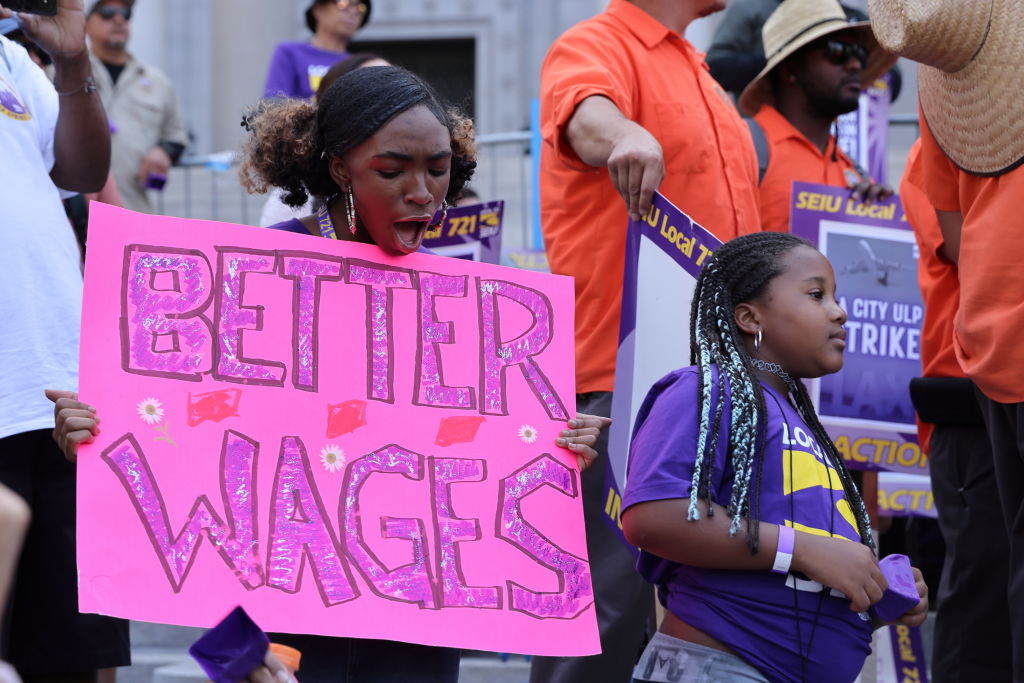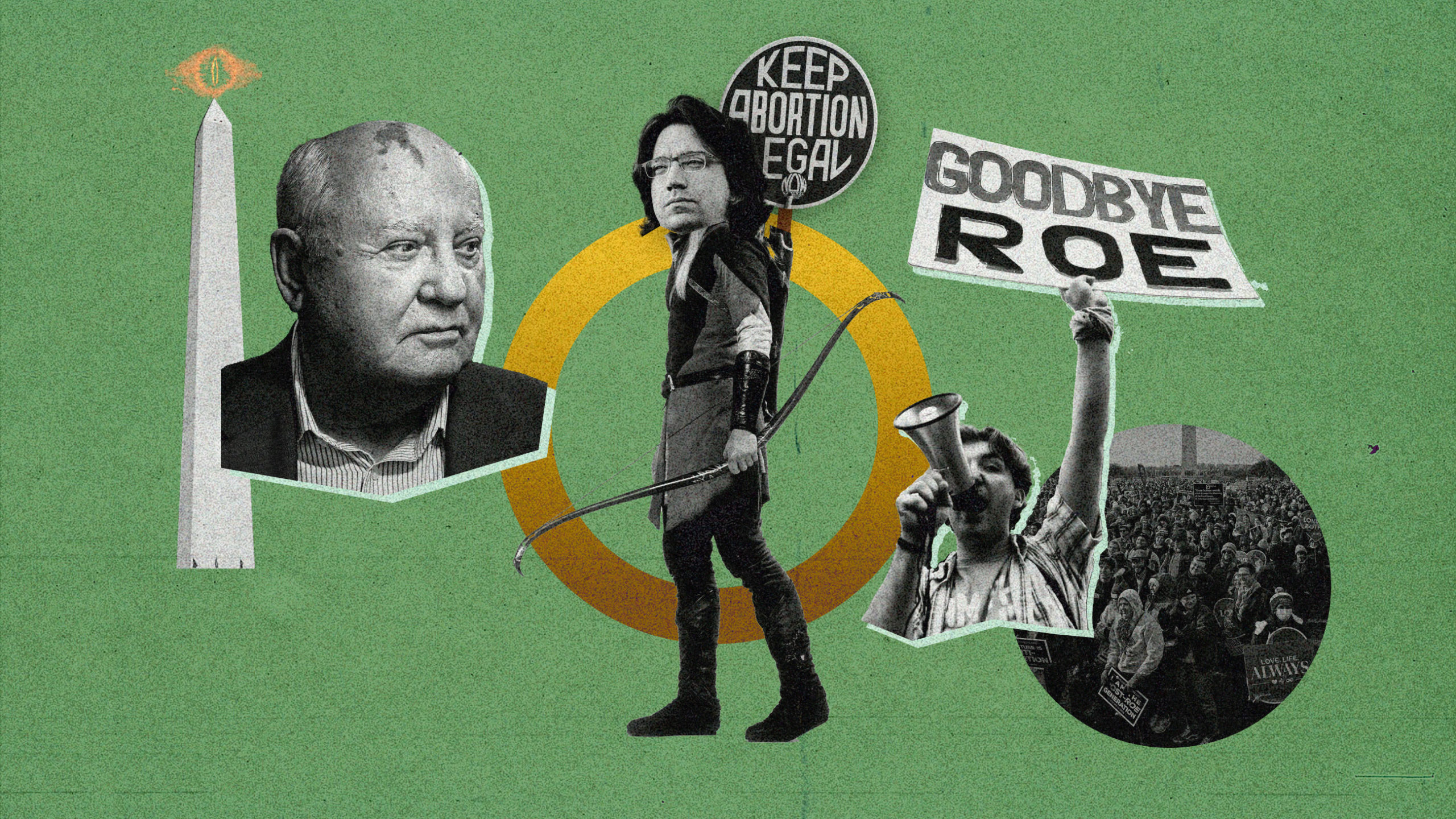Media, Big Tech, and Pharma are allied with national governments in an information war to dictate what goes in our bodies.
Class, Nation, and the Future

The political realignment of America’s voting blocs is still in flux.
“Politics is really downstream from culture.” Andrew Breitbart’s assertion, echoing the ideas of the Marxist philosopher Antonio Gramsci, has become a watchword both for the Right and Left. This culture-first approach has fostered a politics built around cultural issues like abortion, gender, and race, guaranteeing ceaseless social unrest, and in some minds, the prelude to a breakup of the union.
While important, cultural issues are not the main concerns of most Americans. Instead, as Gallup surveys reveal, the more critical issues for most remain jobs, housing, and the economy. Roughly 30 percent of voters ranked economic issues as their key concern—incompetent government was the other big winner—six to ten times the number who cited climate, abortion, or race.
As our politics focus obsessively on cultural conflict, there is little discussion of how to make life better for most people. Europe has endured a decade of stagnation, while Americans’ life expectancy has recently fallen for the first time in peacetime. Data from AEI’s American National Family Life Survey, which sampled over 5,000 Americans and was fielded in November and December of 2021, found 74 percent of Americans believe that things are getting worse and barely a quarter (26 percent) see things improving.
Rediscover Pluralism and Federalism
To restore our focus, we need to de-nationalize the cultural debate. This means allowing various parts of the country to, within limits, express their own preferences. The Constitution wisely assigned most issues of culture—abortion, marriage rights, education, law enforcement—to the proper domain of states and localities.
This is a vast and diverse country with no singular voice on cultural issues. The focus on culture has helped engender the increasingly dogmatic parties with radically different bases who go to different movies, eat different food, and consume different media.
The Right dominates the culturally conservative South and parts of the West while the Left inhabits the narrow band of progressive-dominated dense communities on the ocean coasts, and college towns everywhere. On some issues—defunding the police, affirmative action, exposing children to transgender literature or not informing parents about their children’s gender change—progressive dogma is unpopular with the vast majority of voters, even in California. After decades of an inexorable shift to progressive views on cultural issues, the country, perhaps reacting to the antics of gender activists, is becoming not more liberal, but more culturally conservative.
The culturally conservative face similar problems with their unpopular stance against legalized abortion—some of their own fringe even oppose birth control. They have already lost decisively on the issue in red states like Ohio and Kansas, as well as Michigan. Gallup polls indicate that 46 percent of Americans think the country’s laws toward abortion should be less strict, which marks a 16 percentage point jump from January 2022, when only 30 percent said the same. Only 15 percent of Americans now think the laws should be stricter, and 26 percent are satisfied with how the laws are now.
On cultural issues the Ram-driving blue collar economy and the Tesla elites will never see eye to eye. Perhaps it’s time to address these differences, initially at the state level but best by driving decisions lower down. Both progressives in California and right-wingers in states like Texas and Florida generally want to eliminate local preferences; this ignores the fact that many blue states have large red areas (upstate New York, interior California, Oregon, and Washington) and red states have blue ones (almost all large Texas cities, for example).
One inspiration for this approach derives from my New York youth when I observed the 1969 New York City mayoral race, where the bizarre team of author Norman Mailer and reporter Jimmy Breslin ran for mayor and city council president respectively. This odd but brilliant couple proposed allowing individual New York City school districts to go their own way. Mailer, a self-proclaimed “left conservative,” said in his vision of New York City as the 51st state, it would be ok for Harlem to celebrate Malcolm X’s birthday and Staten Island John Birch’s.
The Great Misdirection
The progressive nomenklatura, who see their job as defining democracy for the rest of us, and the capitalist hegemons, with whom they are increasingly aligned, are the prime beneficiaries of the culture wars. As people obsess about gender, race, or climate, they divert attention away from policies undermining the middle and working classes.
This can be seen in draconian climate measures that stem largely from an ideology celebrating lower living standards. Attorney Jennifer Hernandez labels California’s housing and regulatory policies, based largely on climate concerns, as “the green Jim Crow,” referring to the impact of green restrictionism on the state’s heavily minority working class. The militant Left also advocates a war on suburbia, which as The Nation recently suggested, is a breeding ground for fascism, even though the vast majority of growth there has come from ethnic minorities.
Sadly, Republicans are no bargain either in this regard, particularly its ideologically-dominant libertarian wing. Allied with both Wall Street and Silicon Valley, they have joined with progressives to ban single-family zoning—key to the middle-class dream—in California, Oregon, and Minneapolis. Libertarians have served as fellow travelers in and allies to the hyperactive, oligarch-funded YIMBY (“Yes in My Backyard”) movement that betrays, as longtime Cato Institute fellow Randal O’Toole notes, the very middle class that most supports conservative causes.
Rather than help restore opportunity and upward mobility, some libertarians even hail the expanding welfare state as a boon to capital. They have no objections to capital’s attempt to turn the vast majority of the middle class into propertyless serfs. Large financial institutions like Britain’s Lloyds Bank and BlackRock are massively involved in this process. This undermines the chances for wealth creation aspiration for the coming generation since homes account for roughly two-thirds of the wealth of middle-income Americans.
The Common Class Enemy
Once cultural issues are effectively localized, Americans can concentrate on challenging the entrenched, increasingly dominant ruling class, made up of both tech and financial oligarchs, their non-profit arms, and the elite clerisy in the media, the universities, and the upper ends of the governmental apparat. These groups all seek to gain control of people’s lives, whether it’s to accommodate “net zero” fantasies or make them adhere to progressive notions on gender or race.
As middle-class Americans have struggled, over the past four decades the super-affluent have increased their share of wealth 17 times while the middle and working classes and the poor have seen their share drop to barely 27 percent of GDP. The expanding private airplane class largely supports Democrats—Biden outraised Trump on Wall Street by five to one—and share a cultural and environmental agenda that largely ignores working-class concerns. Once a bulwark of the Left, voters who work in the material world—farmers, truck drivers, plumbers, loggers—are already solidly Republican.
These same big donors may prove far less enthusiastic if more populist Democrats like Bernie Sanders or Elizabeth Warren pursued fully their economic agendas, which now include a massive tax on the super-wealthy “aristocracy.” To date, however, progressives have failed to win over much of the working class, calling their traditional voters “deplorables” or “clingers.” Leftist author Joan Williams accuses progressives of “class cluelessness.” What the working class wants, she notes, is not more welfare and transfers, as Biden has proposed, but “respect and solid middle-class jobs.”
Yet traditional leftism is not yet dead, as we can see in labor actions at companies like Starbucks and Amazon, and inside academia, where progressive orthodoxy conflicts with the realities of a bifurcated labor market between tenured faculty and low-paid teaching assistants. Overall, notes the Economic Policy Institute, work stoppages grew 50 percent last year, a trend that has been evident since before the pandemic. Democrats, notes long-time party analyst Ruy Teixiera, could take advantage of this growing class conflict if they prioritized the everyday concerns of working-class voters, particularly Hispanics.
A similar pattern exists on the Right. Bankrollers of the GOP may be less than thrilled if the party actually favored strong anti-trust measures, bolstered threatened single-family homeownership, or embraced protecting small business from predatory giants. The transformation of the Republican Party to an increasingly working class, and even anti-big business, party terrifies the libertarian business media; the very notion of “common good” capitalism violates ideological dogma. Many view the rise of Tucker Carlson style anti-corporate populism in the party not as a potential boon but a curse that needs to be exorcised.
To a large extent, Trump finds his base among such voters, but the GOP needs to find a less toxic and more focused conservative advocating for grassroots capitalism and some degree of restraint in terms of China trade. As traditionalists they can adopt Hamilton’s approach on domestic economics as well as Washington’s caution on military adventures. After all, it’s middle and working class jobs being sacrificed in the name of “free market principles” as well as the profits of Wall Street financiers; it’s also their offspring, not the children of the oligarchy, who die in endless foreign wars.
A Future Perspective
The awfulness of the looming Biden and Trump contest reveals the dysfunction of the current culture-based politics. Trump wins voters by posturing against the progressive woke, an approach adopted also by Ron DeSantis in his war with Disney. DeSantis’ backing of a strict abortion ban may appeal to the religious Right, but promises no path toward building a winning coalition among the broader electorate. The Right, as City Journal put it, increasingly embrace “a politics of incoherence,” including reflexive support for Donald Trump and designs to impose their own sense of “values,” including on abortion, over those of the wokists.
Biden similarly cements his base by focusing on race-based justice and hysterical climate and energy policies while hailing “transgender rights” as the “civil rights issue of our time.” Americans need politicians focused primarily on challenges to our economy and living standards. Rather than waging cultural war, the national political class should focus instead on the basic economic issues that affect most families. This is where liberals and conservatives should be having their debate on how to create a more prosperous, aspirational future for the next generation.
Stripped of cultural baggage, populist, anti-elite sentiments could emerge with some bipartisan support. We have seen some glimpses here in the “Make PPE in America Act,” as well as recent legislation banning the importation of goods produced by slave labor in Xinxiang. Usually polar opposites, Elizabeth Warren and Lindsay Graham are working to curb the power of the tech oligarchy. Similarly, New York’s Kristen Gillibrand and Missouri’s Josh Hawley are co-sponsoring legislation to restrict stock speculation by members of Congress. Populists in both parties also have expressed concern with the use of federal insurance for large depositors, a clear break with New Deal notions of fairness.
These members, and their constituencies, will not likely get together and sing “Kumbaya” on issues like gender, race, or climate, but could reach meaningful agreement on economic concerns like anti-trust, oligopoly, the power of big banks, homeownership, and the destruction of small enterprise. Once the culture wars are dialed down and localized, the more important economic fissures will be able to take center stage, with politics once again focused on issues of class and prosperity, precisely where they should be.
The American Mind presents a range of perspectives. Views are writers’ own and do not necessarily represent those of The Claremont Institute.
The American Mind is a publication of the Claremont Institute, a non-profit 501(c)(3) organization, dedicated to restoring the principles of the American Founding to their rightful, preeminent authority in our national life. Interested in supporting our work? Gifts to the Claremont Institute are tax-deductible.
The Right can and must fight the culture war.
Running back to the ‘80s.
Men seem to be fighting women’s corner more aggressively than women are.
The ruling class is desperate to keep the truth under wraps this November.
The prognosis for free speech in America promises marked improvement.






